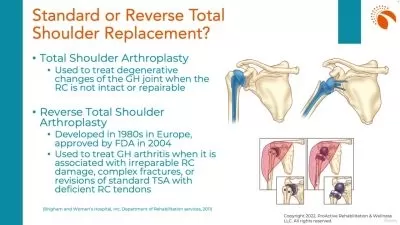Introduction to Pharmacology for the Health Sciences
2:06:38
Description
Fundamentals of pharmacology for nursing and health science students and professionals.
What You'll Learn?
- Understand foundational pharmacology concepts essential for safe and effective medication administration in clinical practice.
- Identify how medications influence physiological and pathophysiological processes across different body systems.
- Explain considerations and implications of medication use and administration across the lifespan.
- Identify the classifications and actions of antimicrobial and anti-infective medications.
- Identify the classifications and actions of autonomic nervous system medications.
- Identify the classifications and actions of respiratory medications.
- Identify the classifications and actions of cardiovascular and renal system medications.
- Identify the classifications and actions of medications regulating gastrointestinal elimination.
- Identify the classifications and actions of medications used to regulate the central nervous system (CNS), mood, and cognition.
- Identify the classifications and actions of endocrine system medications.
- Identify the classifications and actions of medications related to pain and mobility.
Who is this for?
What You Need to Know?
More details
DescriptionThis course is tailored to meet the needs of nursing students, nursing professionals, allied health professionals, and students in the health sciences, including those preparing for the NCLEX, as well as pre-pharmacy and pre-medical students. Whether you’re just beginning your healthcare journey or looking to deepen your understanding of medications, this course offers a comprehensive yet accessible approach to pharmacology.
We’ll cover essential concepts like pharmacokinetics, pharmacodynamics, and safe medication administration, while exploring how these principles relate to the body's systems, including the nervous, cardiovascular, respiratory, gastrointestinal, and endocrine systems. You’ll also gain a deeper understanding of medications used for common disease states. This course is designed to help you make critical connections between physiology, pathophysiology, and the therapeutic use of medications.
To support your learning, we've included a range of study tools, including detailed articles, cheat sheets, quizzes, and links to additional resources. These materials are crafted to help you solidify your knowledge and provide quick references for key pharmacological concepts. Our focus on real-world clinical scenarios and critical thinking will prepare you to excel in your studies, clinical practice, and on exams like the NCLEX. Join us to build a strong foundation in pharmacology and elevate your healthcare expertise!
Who this course is for:
- This course is designed for nursing students, practicing nurses, allied health professionals, health sciences students, including those in fields such as pre-medicine and pre-pharmacy. This course provides a comprehensive yet accessible introduction and review of foundational pharmacology concepts, with a focus on various body systems. This course is also designed to help NCLEX test-takers reinforce pharmacology concepts to succeed with the NCLEX exam.
This course is tailored to meet the needs of nursing students, nursing professionals, allied health professionals, and students in the health sciences, including those preparing for the NCLEX, as well as pre-pharmacy and pre-medical students. Whether you’re just beginning your healthcare journey or looking to deepen your understanding of medications, this course offers a comprehensive yet accessible approach to pharmacology.
We’ll cover essential concepts like pharmacokinetics, pharmacodynamics, and safe medication administration, while exploring how these principles relate to the body's systems, including the nervous, cardiovascular, respiratory, gastrointestinal, and endocrine systems. You’ll also gain a deeper understanding of medications used for common disease states. This course is designed to help you make critical connections between physiology, pathophysiology, and the therapeutic use of medications.
To support your learning, we've included a range of study tools, including detailed articles, cheat sheets, quizzes, and links to additional resources. These materials are crafted to help you solidify your knowledge and provide quick references for key pharmacological concepts. Our focus on real-world clinical scenarios and critical thinking will prepare you to excel in your studies, clinical practice, and on exams like the NCLEX. Join us to build a strong foundation in pharmacology and elevate your healthcare expertise!
Who this course is for:
- This course is designed for nursing students, practicing nurses, allied health professionals, health sciences students, including those in fields such as pre-medicine and pre-pharmacy. This course provides a comprehensive yet accessible introduction and review of foundational pharmacology concepts, with a focus on various body systems. This course is also designed to help NCLEX test-takers reinforce pharmacology concepts to succeed with the NCLEX exam.
User Reviews
Rating

Udemy
View courses Udemy- language english
- Training sessions 90
- duration 2:06:38
- Release Date 2025/03/11









